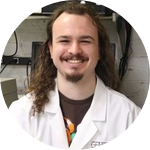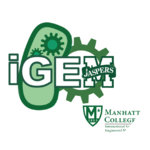About This Project
Bioelectric batteries and the generation of electricity using bacteria is currently inefficient and produces low power output. We hypothesize that increasing electron transfer to the anode will create a more efficient biobattery. We use nanowires to increase the surface area of the anode, design oxidase enzymes to bind directly to that anode, and engineer E. coli to produce bacterial nanowires in an effort to increase the efficiency of electron transfer.
Ask the Scientists
Join The DiscussionWhat is the context of this research?
Energy has become a necessity to sustain our society and to further its advancement. The depletion of fossil fuels and the need for clean energy production has called attention to biofuel cells which convert chemical energy into electrical energy via enzymatic reactions. This source of energy is sustainable, renewable, and does not emit CO2. Conventional fuel cells are generally cost-ineffective in regards to energy production. In addition, once one of the active masses in a conventional fuel cell is fully consumed, the current-producing reaction ceases. Scientists have shown glucose powered biofuel cells to hold much promise. As a resource, glucose is energy dense, cost-efficient, and abundant. It also represents a clean source of power.
What is the significance of this project?
One day we will be able to power electronics using bacteria. To make progress towards this future, we first need to build a system that can sustain low power devices, such as a watch. Ultimately small increases in efficiency will lead to large advancements in biological power sources. For our project, we attempt to enhance an already established biofuel system by increasing electron production, while at the same time, decreasing the distance of electron transfer at the anode. Our engineered oxidizing enzymes, in combination with microbial cells that grow bacterial nanowires allows for a system that can directly adhere the electron production to the anode. We expect we will see more efficient transfer of electrons, thus generating more electricity.
What are the goals of the project?
We will make a battery made entirely powered by bacteria that are optimized for electron production. To optimize electron production, we hypothesize that our system will increase electron transfer to the anode. We will attempt to increase efficiency by increasing surface area of the anode. This, in turn, reduces the distance in which electrons need to travel, and produces bacterial nanowires, which are the electrically conductive appendages of the bacteria, to direct electron transfer from the cell membrane.
Budget
Our team of 10 has been hard at work all summer designing and implementing this project. We've had generous support through the School of Science and the Provost's office but they cannot support sending all of us to the Giant Jamboree conference in Boston. The Jamboree is the culminating event where students showcase their work and achievements. The project was a team effort and it is best supported as a team. Additionally, this is a unique opportunity for our students to network with other teams from some of the most prestigious programs in the world. Each member who contributed to this work deserves to be a part of the complete experience. The budget reflects the Jamboree entry fees for 4 students, and travel/accommodations for 8 of us. Manhattan College has supported 4 of our students entry fees but we need your help to secure the remainder. Any additional money we raise will go toward supporting further research on this project.
Endorsed by
 Project Timeline
Project Timeline
We have been working on this project since June. and have a deadline of approximately November 1 to finish the project. We expect to be completed and have a true test of our systems efficiency by then.
Jul 31, 2017
Made gold nanowire anodes
Aug 16, 2017
Cloned glucose oxidase variants and successfully expressed them.
Sep 08, 2017
Clone mtrCAB operon into expression vector for E. Coli
Sep 15, 2017
Test cell potentials in the presence of oxidase variants
Sep 29, 2017
Present work of our progress at Manhattan College research scholars symposium
Meet the Team
Affiliates
iGEM_anhattan College 2017
Our team consists of Manhattan College undergraduate students from several different disciplines. We have team members who are studying mechanical, civil, and chemical engineering, as well as biology and biochemistry. The team collectively has a deep desire to cross disciplines and learn how different ideas and expertise in ranging fields can all contribute to a unified project. Our advisors are Dr. Wilkins and Dr. Santulli of the Chemistry & Biochemistry department at Manhattan College. We are excited to send Farzana Begum, Brian Evans, Amanda Lazkani, and Dawud Abdur-Rashid to the jamboree this fall.
Ashley Abid
I am currently a student of the Master's in Translational Medicine program at City College. It has been an absolute pleasure helping out with our first iGEM team at Manhattan College. I am very passionate about the intersection of technology and biology and am excited to be a part of the field of cutting-edge biological research.
Bryan Wilkins
I am an assistant professor in the department of chemistry and biochemistry at Manhattan College. I have a passion for biological chemistry with a particular interest in chromatin dynamics. Throughout my entire scientific career I have been fascinated by the use of genetic engineering to study proteins and biological pathways, but even more so by the fact that we can redesign entire pathways to create useful biological machines. The iGEM competition encompasses everything I love about science and I am using that platform as a way to introduce students to the exciting field of synthetic biology. I have recruited engineers, biology and biochemistry students in an attempt to have them learn about how their specific disciplines can overlap and how we can use concepts in engineering to create living circuits in biology.
Gregory Sanossian
My name is Gregory Sanossian. I am currently pursuing a BS degree in Chemical Engineering at Manhattan College. Being a member of this team and having the opportunity to contribute to it's success has been an absolute privilege for me. My team and I have worked tirelessly on our project and have made significant progress, and there is only more to come.
Dawud Abdur-Rashid
Biology Major at Manhattan College and part of their iGEM team, iGEManhattan.
Lab Notes
Nothing posted yet.
Additional Information
![]()
Project Backers
- 5Backers
- 15%Funded
- $859Total Donations
- $171.80Average Donation





